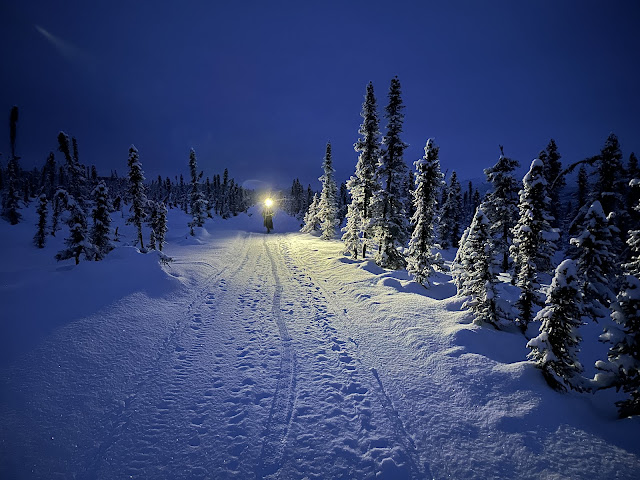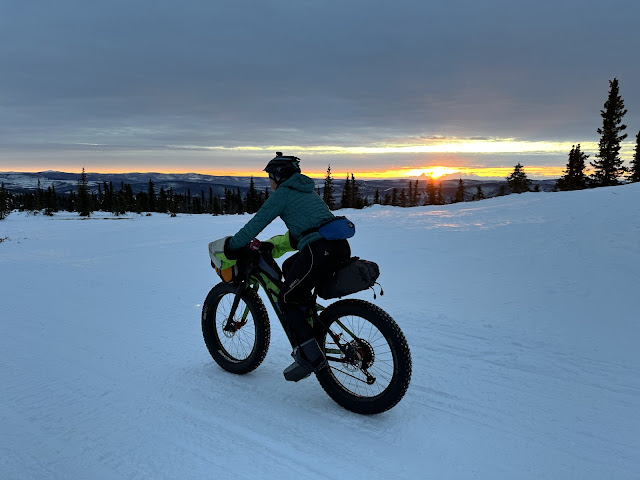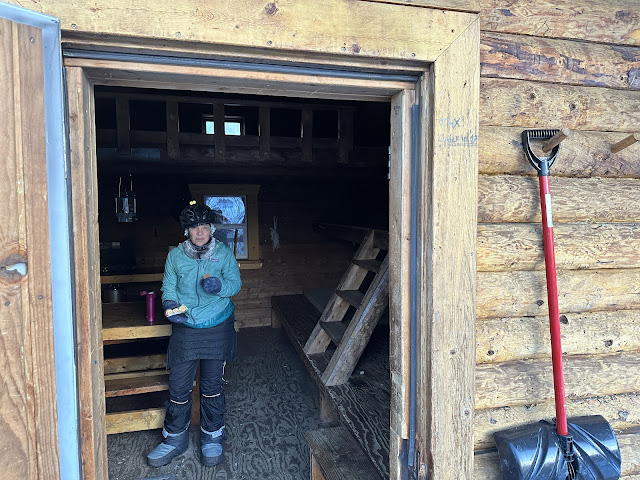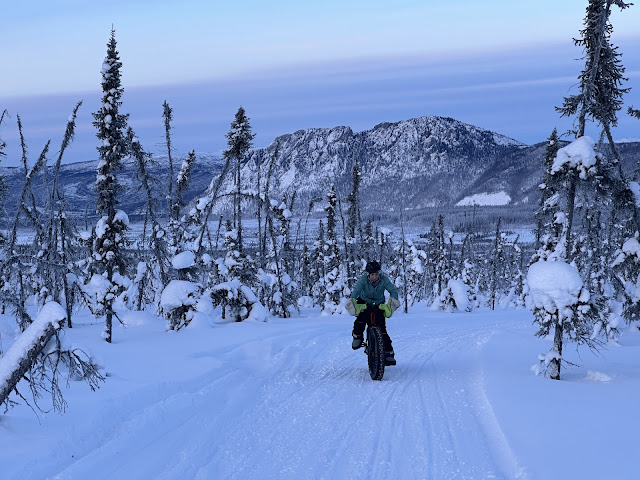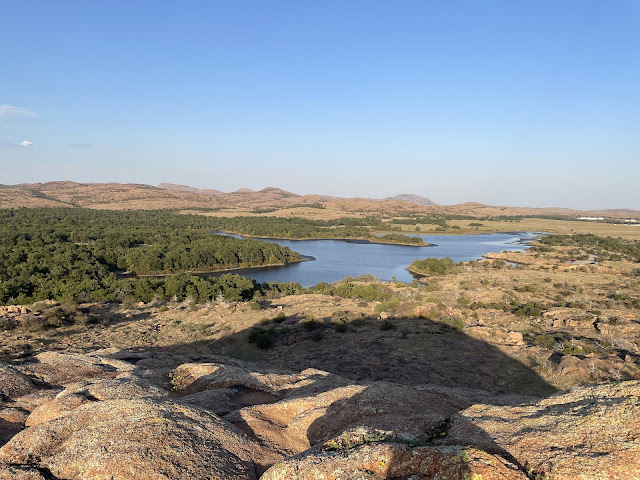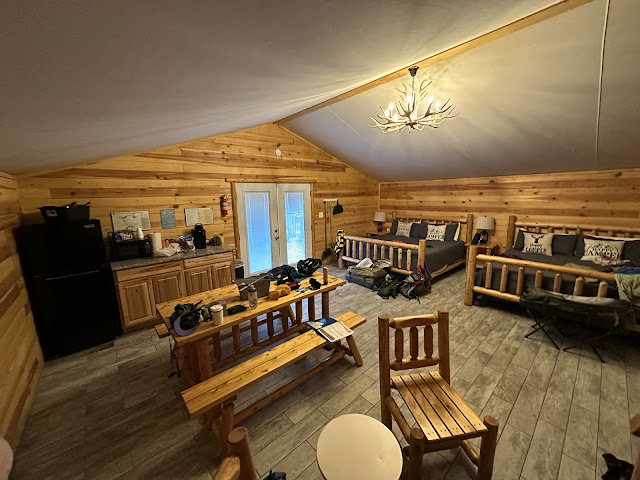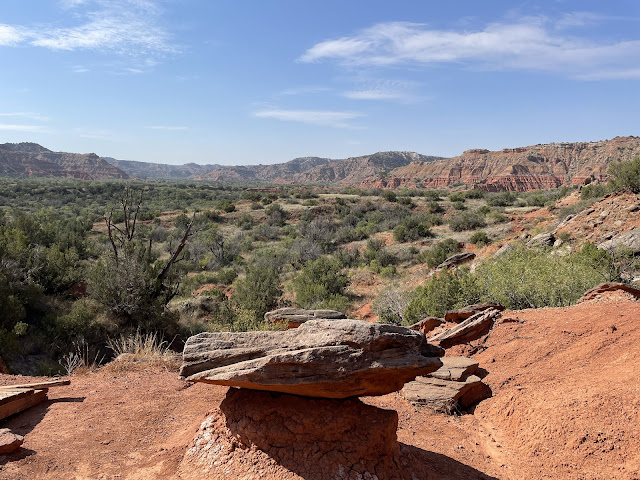post by Corrine
Another cabin trip? After we had just done one? I was not feeling it.
Usually, I’m the one taking the lead on getting us out the door for a cabin trip, but not this time. Beat and I had enthusiastically talked about and then made reservations for the Cache Mountain Cabin more than a month ago. We would go the short (though still arduous) way, via the McKay Creek Trail. Just 19 miles versus 39 miles from the Wickersham Trailhead. A month ago, it seemed like a great idea, but now I was looking for excuses to stay home.
The weather forecast said the temperatures would drop to -30F on the weekend. Yes! Minus 20 is my cutoff for winter trips, so we could cancel. But…the temperature wasn’t going to drop until Saturday evening. Eric suggested we go for one night instead of two. The forecast for Friday and Saturday during the day was for temperatures around zero with no wind. Good for biking. Darn!
Too much new snow is also a good reason to cancel. But…only about an inch of snow was forecast. Not enough to ruin the trails. Double darn!
Still, the trail could be lousy. Maybe there was a lot of soft snow drifts? Maybe it hadn’t been used in a long time? I reached out to Dew Claw Kennel right next to the McKay Creek Trailhead. But…Jodi said they had been using the trail regularly and mushers were going to be out there all weekend, so the trails should be great. Triple darn!
Sigh, I guess I was going to have to go. Eric just smiled. He knew I would be fine once I was out on the trail.
Our Winter Trip “Coaches”
Our friends, Jill and Beat, were visiting for the holidays to do trips into the White Mountains National Recreation Area to train for ultras and just because they love it. They have come up every winter holiday for the past eight years. Just by coming up, they spur us to get out the door in the coldest, darkest time of the year. We never regret it.
Jill and Beat wanted to maximize their time in the White Mountains, so they planned two multi-day trips. Last weekend, we had joined them for the first three days of their five-day trip. Of course they had another planned, this one for four days at Cache Mountain Cabin. Eric and I had planned to go for three days, but as the time got closer, I wasn’t sure I wanted to go. Why? I was tired. It seemed like too much work. I wanted some down time.
My work life is go, go, go. Never a relaxing moment from the time I get to work until I leave. If I’m not in a room with a patient, I’m calling a patient or writing a lab letter or reading through records or trying to contact a specialist. It’s busy all day. Even at lunch, I’m catching up with messages. I’ve been feeling a little burned out, too, knowing I will be retiring in two months. When I get home, I just want to relax.
Beat reminded me that cabin time is down time—no distractions of phones, people, the real world, etc. That’s true but cabin trips have their own stresses.
Cabin Trip Stresses
I have most Fridays off, but if we leave for a cabin trip on Friday that means, after 12 hours of non-stop work on Thursday, I must come home and get all my food and gear packed. Since the cabins are remote, I can’t forget anything crucial. By the time I’ve had dinner and packed up, it’s time for bed. And since daylight is short this time of year, we get up early for the drive to the trailhead. No sleeping in. Relaxing? Definitely not.
But once on the trail, I can relax, right? Well, not always, especially in winter. Fatbiking with a loaded bike is hard work. Even with good trails. But if the trails are bad or the light is flat, it can be tricky and take a lot of concentration. And you have to think about not getting too sweaty on the climbs and to layer up quickly for the long descents. Even if you do everything right, you will probably get cold. Your hands and feet are the first things to go numb. Then it’s stressful and painful warming them up again. Make a mistake and you could suffer frostbite or worse. It’s harder to relax dealing with all that.
When you finally get to the cabin, you can’t relax. First, you have to start a fire. Hopefully there is some wood available for this. Then you need to collect and cut up more firewood. And collect snow to melt for water. And get your gear out and sleeping pad blown up. And hang up your sweaty gear to dry by the woodstove. And boil water for dinner. Whew! It’s amazing anybody does winter bike trips! It’s a lot of work. Fortunately, I usually have Eric to share these chores. (And if you are slower on the trail, then a warm cabin and melted water are waiting for you. Maybe I should walk like Jill and Beat!)
But after all that, you finally get some downtime and relaxation. Then it’s nice. (Until you have to get the fire started in the morning and get breakfast going and pack up and head out again!)
More Than Just Trip Stresses
But I’ve had no problems dealing with the stress of winter cabin trips before. My stress this time was more than that. I have been in a tired funk most of the winter. I’m not sure what it is. Could it be the recent disappointing diagnosis of severe osteoporosis of my spine? I don’t smoke or use alcohol. I exercise a lot including regular strength workouts. And it doesn’t run in my family. My only risk factor (besides being an older female) is that I have ankylosing spondylitis, an inflammatory type of arthritis that affects the spine. It can put you at risk for osteoporosis. But my disease had been under good control since my 40s, so I figured I wouldn’t have this issue. I figured wrong.
Severe osteoporosis can be limiting for people. I’ve had patients with my level of osteoporosis sustain compression fractures of their spine just from walking down stairs. Yikes! But I want to stay active and not worry about falling. So, I will be starting on some high-powered medications (expensive with lots of side effects) to help build bone. I will continue my strength workouts, which help slow osteoporosis. I’m also trying to get more calcium in my diet and take my Vitamin D more regularly. Hopefully, I won’t get any worse.
I know I’m getting older, but I’ve never let that affect my outlook. But to be slammed in the face with this diagnosis is disconcerting. My body is starting to betray me. Is this the start of a slow slide into old age? I know it’s inevitable. As a doctor I see it happening to many of my patients. But I’m not ready to turn into an old person. Of course, are we ever? Maybe thoughts about aging are affecting my mental health. Could I be a little depressed, which can cause fatigue? I’ll need to think about that more.
Out the Door and Better for It
With Eric’s and Beat’s encouragement, I agreed that we should head out for an overnight at the cabin. The next morning, on the hourlong drive to the trailhead, I was already wanting a nap! But the McKay Creek Trail starts with a 7-mile grunt of a climb with the steepest part in the first mile. No resting there. After just a few minutes of pedaling I was gasping for breath and my heart was pounding. But at least the trail was firm so I could bike. Pretty soon I was a sweaty mess and had to stop and peel layers. Eric doesn’t like long climbs and took more breaks. We got separated, but I knew he would catch me as he is faster on the downhills. After a couple of hours of slow pedaling, I made it to the top. And I was able to bike the entire way, an indication that my fatigue was more mental than physical.
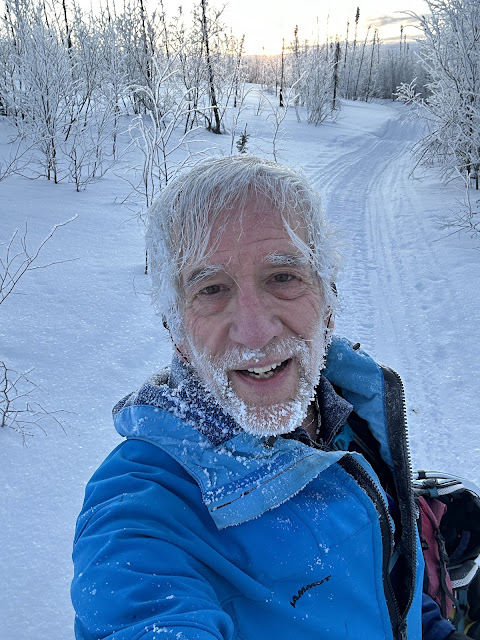 |
| Eric gets hot and sweaty on the climb |
And the view at the top was worth the climb. The valley was filled with clouds, but the mountains rose above the fog and were lit up by the dawn sun. It was magical. A reminder of why we do these trips. I took a few photos, then put on a layer before the first long descent.
The trail got softer after the turn off to Richard’s Cabin as most of the traffic had gone that way. I let air out of my tires to improve traction and was able to mostly stay on my bike during the descent.
Jill and Beat had started a couple of hours before us. But biking is almost always faster than walking with a sled behind you. I caught up to Jill near the bottom of the first descent into the Ophir Creek valley. She was in good spirits, moving slowly and steadily. Now close behind, Eric passed her a few minutes later.
 |
| We catch up to Jill |
The climb out of Ophir Creek includes some tough hike-a-bike sections. I kept stopping every few feet to catch my breath. I was feeling more tired than I expected. Usually, I like the challenge of a big hill but not today. Was it physical or mental? Maybe both? Eric caught me on the climb. He’s a bit better at hike-a-bike than I am.
We were happy to crest the top of the hill and begin another decent across a mostly open area. This part is often drifted, but luckily the drifts and trail were firm. Last year, we turned around here due to endless soft drifts. Today was not effortless but much better.
 |
| Windblown but with good trail |
After another long descent, we started another climb and finally caught Beat. He was in great spirits, finishing up a break. He relishes sled-dragging trips. Eric and I chatted a few minutes then continued the longish climb, but some of the drifting here made the biking more challenging. We were on and off our bikes. At one point, Eric looked back and could see Beat gaining on us. That spurred us on. We didn’t want to get passed by a walker! Finally, we got to the descent to Beaver Creek, confident we would get to the cabin well before Beat.
 |
| We finally catch up to Beat |
It was getting dark as we got to where the McKay Creek Trail intersects the Cache Mountain Loop Trail. Less than three miles to the cabin, but it’s almost all uphill! Eric was feeling strong and charged ahead. I didn’t have the same energy and couldn’t keep up with him. Then, at one point, I looked back into the dark and saw a headlamp.
“What? Beat is catching up to me?” I thought.
I knew I was moving slow, but was I really that slow? I tried to pick up my speed, but the headlamp was still catching me. As it got closer, I finally heard barking and realized it was a dog team, not Beat. Whew!
The dog team along with a snowmachine passed me. I continued my slow 3-4 mph pace. I remembered this last section as undulating low hills, but it seemed like it was a constant uphill until the final half-mile gentle descent to Cache Mountain Cabin. I made it to the cabin in six hours, longer than it’s taken me in the past. Sure, some of it was the trail conditions but a lot of it was me. I just was not feeling it. Still, I had made it. Tired but happy.
Some Relaxing, Then the Return
We had a quiet evening in the cabin with Jill and Beat once they arrived. (And after all the chores were done.) They planned to hike up to Cache Mountain Divide the next day while Eric and I would bike back out. Overcast skies helped keep the temperature around zero but meant no auroras. I was happy that the temperature hadn’t fallen too much by morning and that it had only snowed around an inch.
The bike out was not much easier than the bike in. There are a couple of sustained hike-a-bike sections and some steep-but-bikeable hills. I might have ridden more and pushed less, but my legs were toast from the day before. I was happy to see Eric pushing his bike because it gave me an excuse to avoid getting on the bike. At least when you’re pushing, it’s easy to stop and rest.
We saw several snowmachiners, and Eric helped one get his machine unstuck. We also saw several mushers which really helped to pack the trail down. We were glad to finally get to the top of the last hill although we both got chilled on the last several-mile fast descent. After starting the car, we had to run around the parking lot waving our arms to warm up and warm our hands so we could unload our bikes.
We stopped at the Chatanika Lodge for hot food on the way home and reminisced about the weekend. Yes, it had been tiring. Yes, it took a lot of time to pack and unpack. Yes, it was a lot of physical effort. Yes, winter cabin trips do have their stresses. But, yes, it was worth it. Being outdoors in the wilderness is challenging but rewarding. And doing it with my husband and friends just makes it that much better.
I hope as I age, despite my osteoporosis, I can continue to keep challenging myself outdoors. In the end, despite the stress involved, these trips help make life interesting, exciting, and fulfilling.














